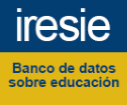Digital tools applied to reading and writing in students with moderate intellectual disability
Keywords:
aprendizaje, educación, discapacidad, inclusión, lectoescrituraAbstract
The purpose of this research work is to investigate the impact of digital tools for teaching literacy in students with moderate intellectual disabilities, considering the principles of inclusive education proposed in the Constitution of Ecuador and adopted by the Ministry of Education in which indicates that students with special needs may be inserted in the school environment. The method that guided the study was descriptive, the qualitative approach, the instrument was the documentary review of scientific and academic journals, the results were captured in a prism matrix. A total of 10 scientific articles were selected, extracted from three databases: SCOPUS, ERIC and WOS. The results of the study revealed that digital tools for teaching literacy are capable of adapting to the degree of language development that the student has, in addition to their psychoevolutionary characteristics, vocabulary, as well as the texts taking into account the cognitive levels of the students, concluding that digital tools contribute positively to the learning of literacy, hand in hand with adequate support from teachers.








